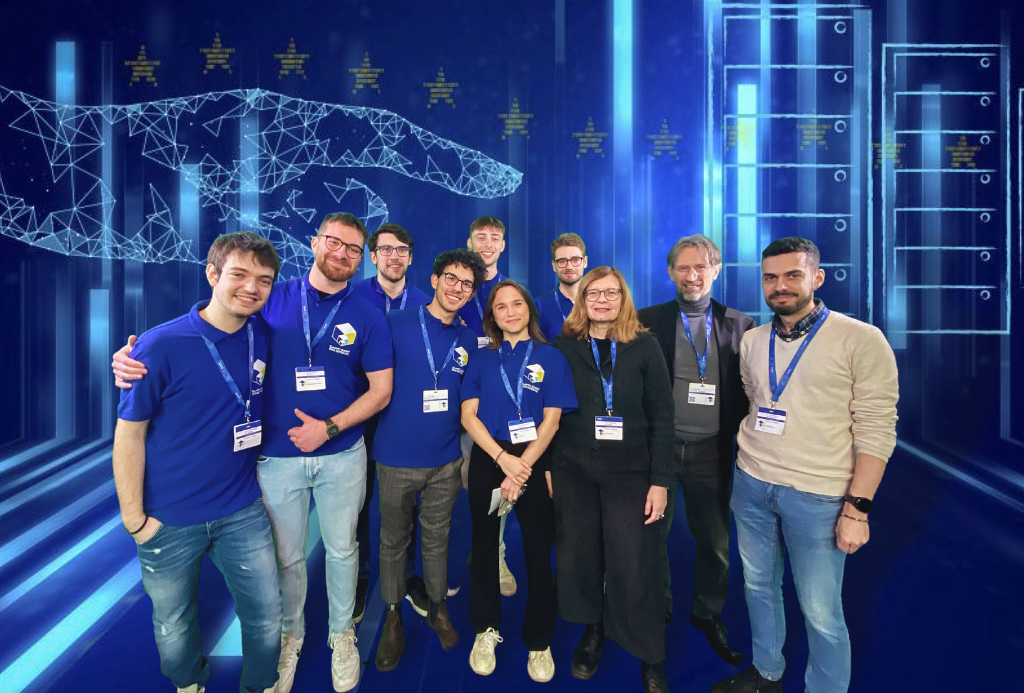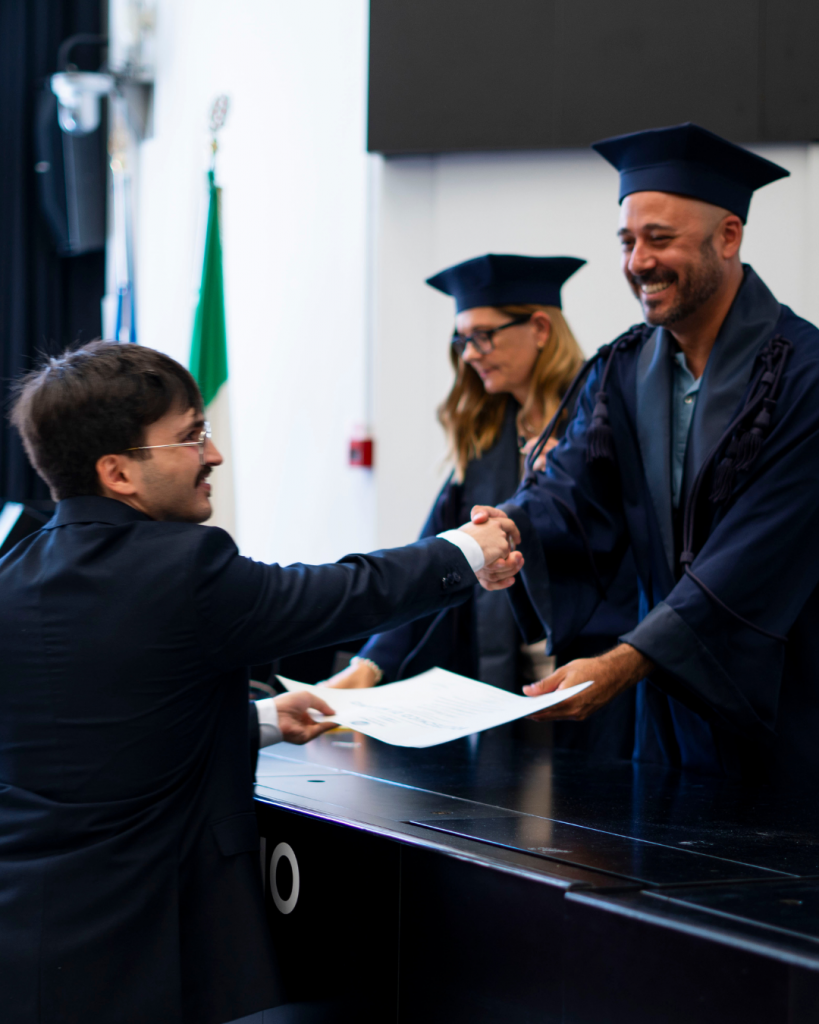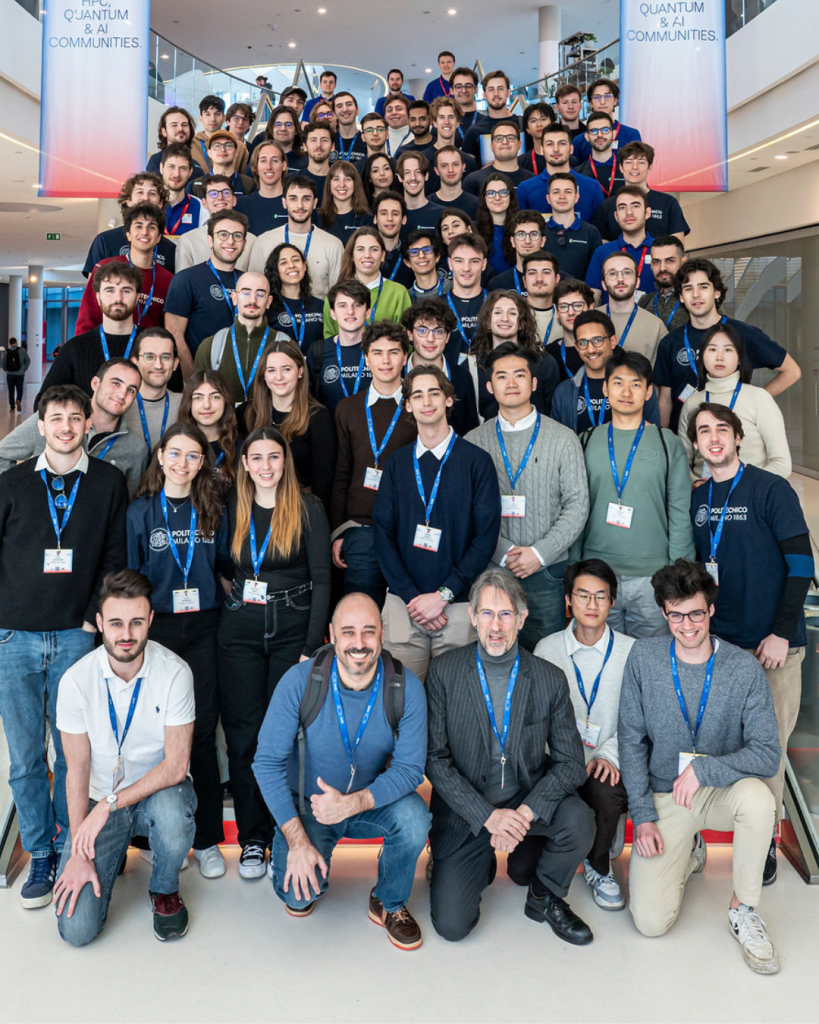Laurea Magistrale
High Performance Computing
Engineering
L’ingegnere in High Performance Computing (HPC) è una figura professionale altamente specializzata che
- progetta, sviluppa e ottimizza soluzioni computazionali avanzate per affrontare i problemi più complessi in ambito scientifico, industriale e tecnologico;
- opera lungo l’intera filiera del supercalcolo: dalla modellazione matematica di fenomeni fisici o dati reali allo sviluppo software ad alte prestazioni, in grado di funzionare su architetture parallele e distribuite, fino ai più recenti sistemi quantistici;
- integra competenze numeriche e informatiche per simulare sistemi complessi, analizzare big data, ottimizzare il codice per infrastrutture di calcolo avanzate e implementare modelli di data science, intelligenza artificiale e deep learning in ambienti ad alta intensità computazionale, inclusi i sistemi di calcolo quantistico.
Accelera il futuro: inizia il tuo percorso nell’HPC!

Titolo
HPC Engineering
Classe di laurea magistrale
LM-32 Ingegneria Informatica
Durata
2 anni, 120 crediti
Campus
Milano Leonardo
Lingua
Inglese
Il Programma
La struttura del Corso di Studio riflette la volontà di formare ingegneri capaci di affrontare problemi complessi attraverso l’uso integrato di competenze matematiche, informatiche e ingegneristiche, con un’attenzione particolare all’innovazione tecnologica e scientifica, alla scalabilità delle soluzioni, e alla multidisciplinarità delle applicazioni.
Il Piano degli Studi prevede complessivamente 40 CFU di corsi a scelta, che permettono di personalizzare il proprio percorso formativo, spaziando dall’approfondimento metodologico all’esplorazione di contesti applicativi reali.


Sbocchi lavorativi
Formiamo figure professionali con solide competenze tecniche e scientifiche, in grado di progettare soluzioni di calcolo ad alte prestazioni e gestire sistemi computazionali avanzati. Potrai operare in ambiti strategici come aerospazio, bioinformatica, energia, finanza, sostenibilità ambientale, farmacologia… In questi settori, la capacità di sfruttare la potenza del supercalcolo e del quantum computing per analizzare grandi moli di dati e risolvere modelli numerici complessi su scala reale rappresenta un fattore determinante per l’innovazione, l’efficienza e la competitività.
Applicazioni e scenari
L’HPC viene utilizzato in diversi ambiti, tutti accomunati dalla necessità di un’elevata potenza di calcolo per risolvere problemi, analizzare dati su scala reale o eseguire simulazioni complesse.
Clima & Scienze Naturali
modellazione cambiamento climatico, simulazioni sismiche, individuazione risorse
Manifattura & Scienze dei Materiali
ottimizzazione processi industriali, digital twins e simulazioni, test su materiali
Salute & Farmaceutica
scoperta nuovi farmaci, medicina di precisione, dinamica molecolare, genomica
Finanza
ottimizzazione portfolio, valutazione rischio e credit scoring, identificazione frodi, trading algoritmico
Aerospazio
calcolo e simulazioni di fluidodinamica, propulsione, progettazione aeromobili e veicoli spaziali
Intelligenza Artificiale & Data Science
sviluppo modelli AI, acceleratori per Deep Learning e AI generativa, analisi predittive su larga scala
Ma che cos’è il supercalcolo?
Il supercalcolo offre un vantaggio competitivo nello sviluppo di nuove applicazioni, accelerando l’analisi di grandi quantità di dati e l’esecuzione di algoritmi di intelligenza artificiale sempre più complessi e sofisticati. E poi cos’è il Quantum e come funziona? Ce lo racconta Cristina Silvano, docente di Advanced computer architectures ad HPC Engineering.
Ammissioni
Per essere ammessi occorre essere in possesso di una laurea di primo livello nelle classi: L7 (Ingegneria civile e ambientale), L8 (Lauree in Ingegneria dell’Informazione), L9 (Lauree in Ingegneria Industriale), L31 (Laurea in Scienze e tecnologie Informatiche).
Se soddisfi le seguenti condizioni, l’ammissione è automatica:
- provenienza dai corsi di laurea (triennale) del Politecnico di Milano in Ingegneria Informatica, Ingengeria Matematica, Ingegneria Fisica, Ingegneria dell’Automazione, Ingegneria Elettronica.
- media di profitto pari o superiore a 24/30.
Se provieni da altri corsi di laurea del Politecnico o da altre università, o se non soddisfi il requisito di media, la tua candidatura sarà valutata tenendo conto del tuo percorso di studi, dell’andamento e dei risultati ottenuti.

Scopri






